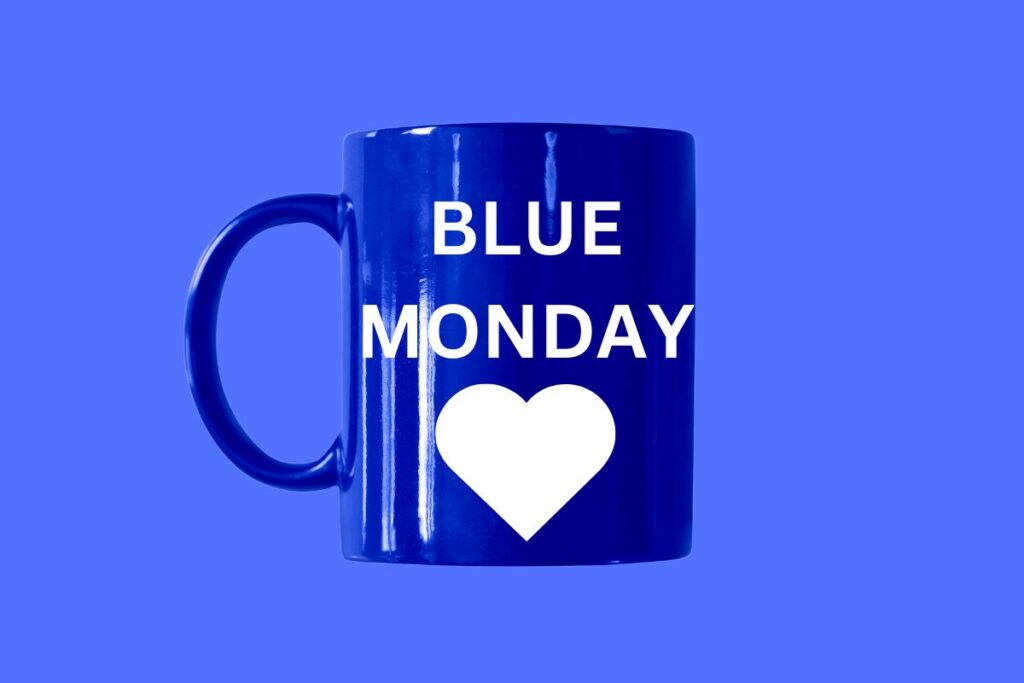Blue Monday falls on the 3rd Monday of January and Blue Monday – is considered the saddest day of the year and this is definitely a time to consider and act on mental health. With the December break a distant memory and the dark winter days continuing, long period between pay and the start of the new year can be a difficult time for many people.
The term ‘Blue Monday’ was coined in 2005 as the saddest day of the year and though it is based on a calculation that has now been refuted as ‘pseudoscience’, while there has been dispute over the legitimacy of of the day itself there is clear evidence of that more people experience depression during the winter months and the day can be one for reflection on mental health and wellbeing
Whilst statistics on mental health can be misleading, the Mental Health Foundation has found that ethnically diverse populations are more likely to experience socio-economic conditions that can trigger mental health issues and often experience unequal access to mental health therapy and treatment. Furthermore, some ethnically diverse groups have been found to experience poorer mental health than white people, such as Black women are known to experience anxiety and depression disorders more than their white counterparts.
As we move through Blue Monday, it’s a perfect moment to focus on well-being. The image below captures the essence of positive habits, self-care, and the small joys that brighten even the darkest days. It’s a reminder that even amid challenges, there are moments and actions that can uplift our spirits and nurture a sense of balance.

Race Equality Week – 3rd – 9th February 2025
Race Equality Week plays a crucial role in fostering inclusivity. This years theme is #EveryActionCounts, and every single person has the ability to take action whether big or small to make a difference. the week encourages organisations to address systemic barriers, create diverse and supportive environments, and raise awareness about the unique challenges faced by those from marginalised communities
The Five Day Challenge
We know that intersectionality affects mental health and wellbeing and how we are accepted or treated makes a significant difference. This is on top of other factors like what is going on in our lives and the winter months. To understand more about intersectionality and its impacts we will be looking at it as part of this years 5 Day Challenge which we have launched ahead of Race Equality Week.
Race Equality Matters’ 5-Day Challenge is the third issue of a solution to tackle race inequality in the workplace 5 challenges that take 5 minutes over 5 days. This year we have focused on Intersectionality, Recognising Privilege, Inclusive Language, Code switching/Masking and the Big Promise.
The first day of the Challenge is an ‘eye-opener’ that encourages people to reflect on their assumptions, actions and attitudes towards the effects of intersectionality in their professional and personal lives. This Blue Monday, we encourage participants to ask themselves:
Day 1. Intersectionality – How do different parts of who we are (like race, gender, and culture) affect our experiences and interactions at work?
‘We often focus on just one issue, like “race” or “gender,” when talking about diversity at work. But as this activity showed, everyone has many identities that make them who they are, hence we don’t fit into just one box.’ (The 5 Day Challenge)
Intersectionality highlights how overlapping identities such as race, gender, religion, socioeconomic status, sexuality and ability and more can influence individuals’ experiences at work. These intersecting factors can amplify challenges, such as discrimination or unequal access to resources which has also been highlighted particularly when it comes to mental health.
“In the UK, people from diverse ethnic minority groups have poorer access to, experiences with, and outcomes from mental healthcare services, compared to White British people” Even further a “review found that mental healthcare services often did not consider how racism, migration stress, and complex trauma affect mental health.”(NIHR – https://journals.plos.org/plosmedicine/article?id=10.1371/journal.pmed.1004139





To find out about more of the topics we have mentioned download the 5Day Challenge here – https://www.raceequalitymatters.com/5-day-challenge/
This Blue Monday you can make a difference to your workplace culture through a simple act of kindness. #EveryActionCounts
This Race Equality Week you can make a difference to your workplace culture through committing to meaningful change.
Start your journey today. Download the Five Day Challenge Guide.
Every action taken to recognise and support your own mental health, as well as the mental health of others, plays a vital role in fostering well-being. Small acts of care, understanding, and compassion can create a ripple effect, contributing to a culture of support and resilience for all. #EveryActionCounts

